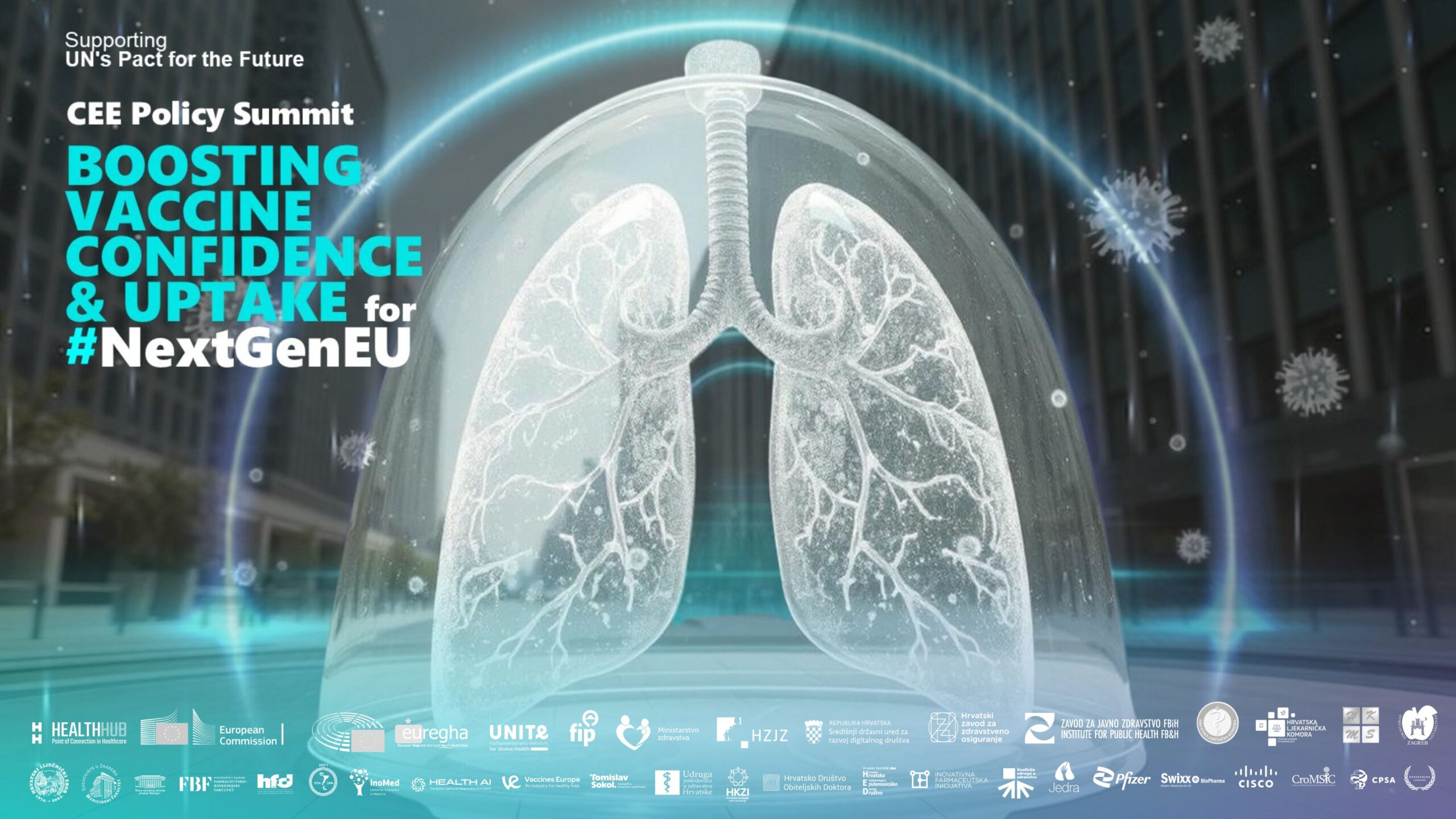Health Hub’s CEE Policy Summit – Immunization and Antimicrobial Resistance Stewardship – Challenges and the Way Forward
ntimicrobial stewardship refers to the coordinated efforts to optimize the use of antimicrobial drugs to treat infections while minimizing adverse effects, including the development of resistance. By preventing infections, vaccines directly contribute to these stewardship efforts in several important ways:
- Reducing Antibiotic Prescriptions: The fewer infections people get, the fewer antibiotics they need. Vaccination helps reduce the incidence of diseases that often lead to antibiotic prescriptions, including pneumonia, otitis media (middle ear infections), and urinary tract infections. Fewer antibiotic prescriptions mean less opportunity for resistance to develop.
- Protecting Vulnerable Populations: Certain groups, including the elderly, young children, and individuals with compromised immune systems, are more susceptible to severe infections and often require more aggressive antibiotic treatments. Vaccines help protect these individuals from contracting infections in the first place, thereby reducing their need for antibiotics.
- Reducing Secondary Infections: Vaccination can prevent primary infections, which are often followed by secondary bacterial infections that require antibiotics. For instance, influenza infections can sometimes lead to bacterial pneumonia, which necessitates the use of antibiotics. By preventing influenza through vaccination, the risk of secondary infections is reduced, thus reducing the need for antibiotic treatment.
- Limiting Healthcare-Associated Infections (HAIs): In healthcare settings, patients are particularly vulnerable to infections due to their weakened immune systems. Many of these infections are preventable through vaccines. By reducing the incidence of vaccine-preventable diseases, healthcare-associated infections (HAIs) can be reduced, lowering the need for broad-spectrum antibiotics and mitigating the risk of resistance.

Global Immunization Initiatives and AMR
International health bodies like the WHO and the Centers for Disease Control and Prevention (CDC) have recognized the interconnectedness of immunization and antimicrobial resistance. Global immunization initiatives, such as the Global Vaccine Safety Initiative and the Expanded Program on Immunization (EPI), not only aim to reduce the burden of infectious diseases but also contribute to the global fight against AMR.
The integration of vaccination programs with AMR action plans could amplify the impact of both. For example, the WHO’s Global Action Plan on Antimicrobial Resistance emphasizes the importance of preventing infections through immunization as a key strategy to reduce the need for antibiotics. This alignment ensures that immunization is not only seen as a tool for disease prevention but also as a cornerstone of responsible antimicrobial use.

While the benefits of immunization in reducing AMR are clear, challenges remain. Some of the barriers to achieving widespread vaccine coverage include misinformation, vaccine hesitancy, limited access to healthcare in low-resource settings, and logistical challenges in vaccine distribution. Additionally, new and emerging pathogens, such as those causing antibiotic-resistant tuberculosis and multidrug-resistant pneumonia, require ongoing surveillance and vaccine development.
To maximize the impact of immunization on antimicrobial stewardship, efforts must be made to:
- Increase global vaccine coverage, particularly in low- and middle-income countries.
- Promote vaccine education to combat misinformation and vaccine hesitancy.
- Ensure equitable access to vaccines, especially in underserved and high-risk populations.
- Support ongoing research into new vaccines targeting antibiotic-resistant pathogens.

Conclusion
Modern immunization policies are playing an increasingly important role in the global effort to combat antimicrobial resistance. By preventing infectious diseases, vaccines reduce the need for antibiotics, helping to curb the overuse and misuse that drive the development of resistance. When integrated into broader antimicrobial stewardship programs, vaccination offers a powerful, preventative strategy that complements antibiotic control efforts and contributes to improved public health outcomes. Moving forward, strengthening immunization policies and expanding access to vaccines will be crucial in safeguarding the effectiveness of antibiotics and ensuring a healthier, more resilient future for all.





